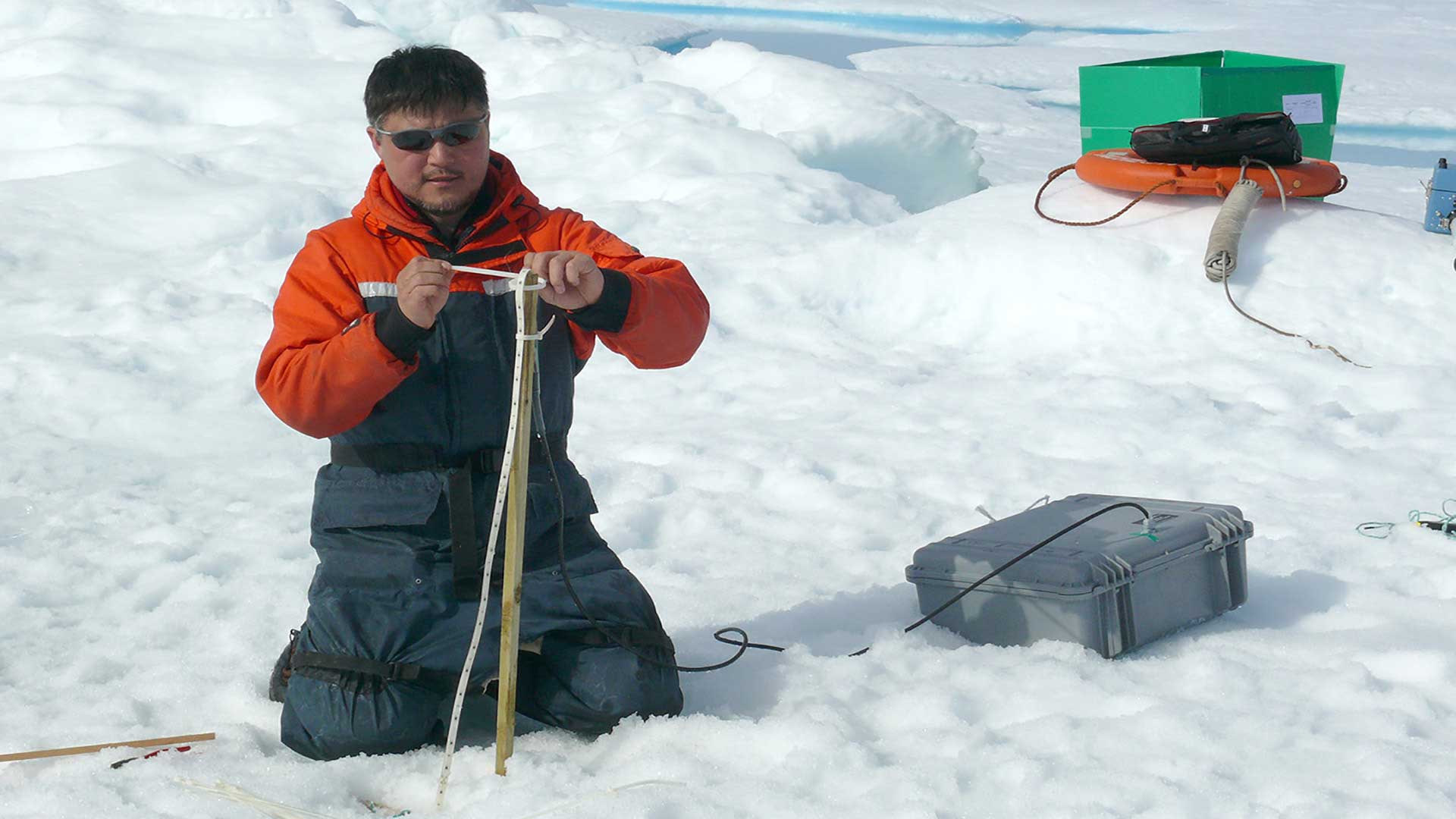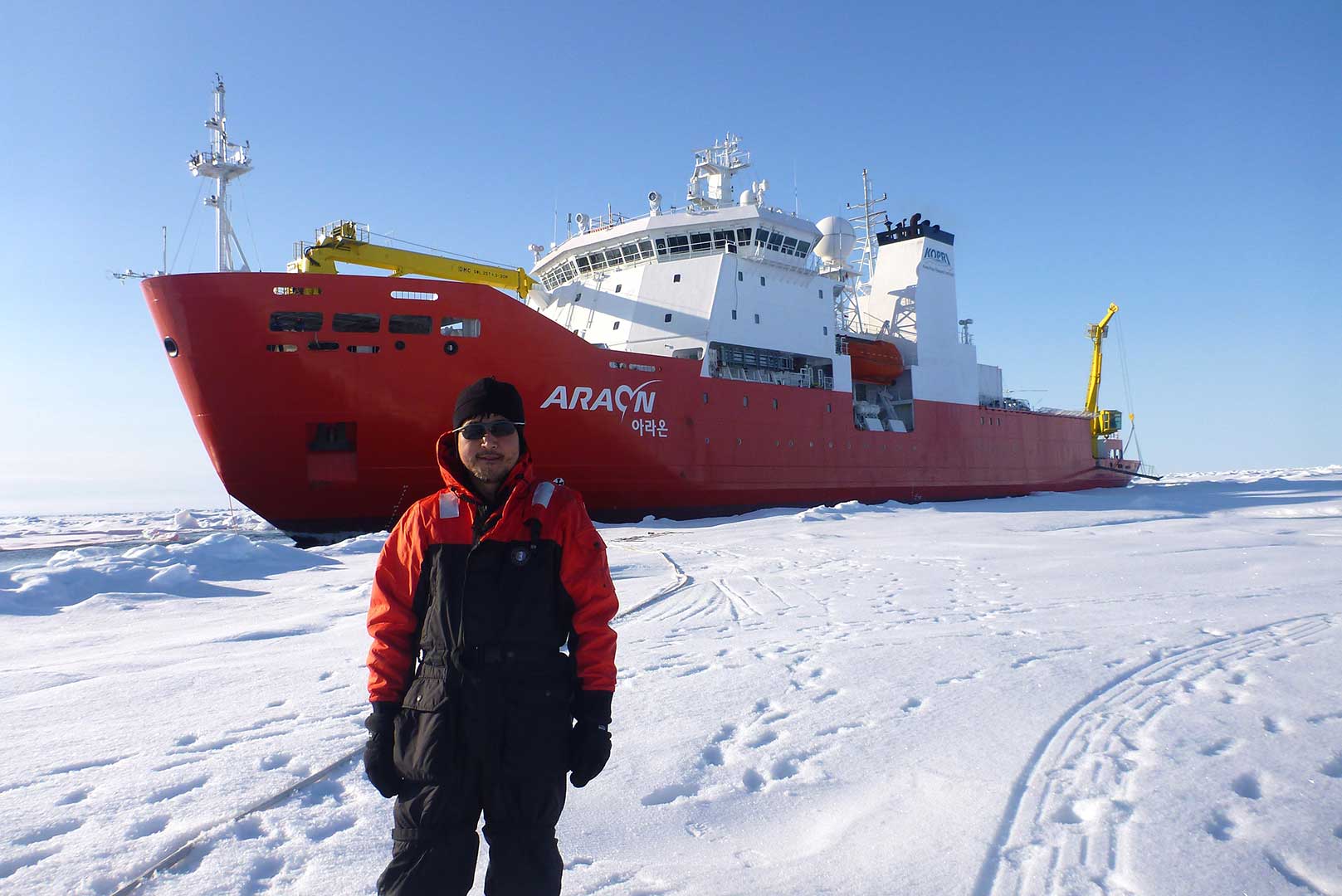Geophysicist joins €100 million Arctic exploration project
The University of Huddersfield’s Dr Phil Hwang is an accomplished Arctic researcher who has already made 15 voyages to the Arctic region, observing, recording and analysing seasonal changes in the ice. The data he gathers makes an important contribution to the scientific debate over climate change.
When he next travels to the Arctic region, he will be participating in MOSAiC (Multidisciplinary drifting Observatory for the Study of Arctic Climate) - the biggest single Arctic research expedition ever planned - thanks to almost £300,000 in funding from the UK Government-backed Natural Environment Research Council (NERC). The project’s total cost will be over 100 million euros.
MOSAiC is a global project which includes scientists from 16 countries, including Germany, Russia, USA, China, UK, Norway and Canada, and more than 60 institutions. “The results of MOSAiC will contribute to enhance understanding of the regional and global consequences of Arctic climate change and sea-ice loss,” explains Dr Hwang.

Arctic sea ice decline
The Arctic is the region where climate change is at its fastest, with sea ice in rapid decline. There is an urgent need for new, improved methods of modelling and predicting these changes, which have an impact on weather patterns around the world.
The new overall project, which Dr Hwang will join, will be co-ordinated by the Alfred-Wegener Institute. The plan is to allow the Polarstern, the 120m-long research vessel, to be frozen into the Arctic sea ice in the winter of 2019 and then allow the ship to spend the next year drifting south with the ice for more than 700 miles, with teams of scientists on board.
Dr Hwang stresses that the Polarstern will not move under its own power. It will be carried by the ice for an average distance of about six miles a day, with the speed of the flow being more rapid in the summer.

Arctic survey
Now that his proposal to take part in MOSAiC has received NERC backing, Dr Hwang is beginning to make preparations. “Setting out from a departure point in northern Europe or Russia, we will probably join the Polarstern in July 2020 and remain on board for two months, having been “ferried” to the research vessel by an icebreaker, although helicopter travel might also be necessary. We will all have polar bear protection and specialist training.”
He will take with him some specially-designed and constructed buoys equipped with GPS devices that are capable of tracking the movement of ice with extreme precision.
The goal of Dr Hwang and his co-investigator Dr Jinchang Ren, of the University of Strathclyde is to investigate what is known as the marginal ice zone and the patterns which increasingly sees winter ice deforming and then breaking up in the spring and melting in the summer. It is believed that greater understanding of these seasonal ice floes can lead to better models for climate prediction.
“We have satellite observation that can see what is happening alongside the ship. But if we want to measure how the individual ice is breaking up and melting, satellite cannot resolve that. In simple terms, we have to be there to go and measure it.”
As a geophysicist and remote sensing expert, Korean-born Dr Hwang has developed a specialism in the dynamics and thermodynamics of snow and sea ice in polar regions. He has undertaken a large number of expeditions to the Arctic, including some tough mid-winter assignments.
Early in his career, he was based at the Canadian Centre for Remote Sensing and this was followed by a decade with the Scottish Association for Marine Science, until his appointment at the University of Huddersfield. He will appoint one PhD researcher to help him work with his findings as part of the MOSAiC project.
€100 million Arctic project will see Huddersfield researcher survey changes in the ice and contributing to the scientific debate on climate change.
Dr Byongjun (Phil) Hwang
Senior Lecturer in Biological & Geographical Sciences
Dr Byongjun (Phil) Hwang is a Senior Lecturer in Biological and Geographical Sciences in the School of Applied Sciences at the University of Huddersfield. He is a geophysicist and remote sensing specialist researching the dynamics and thermodynamics of snow and sea ice in the Arctic. Since completing his PhD from the University of Manitoba, Canada in 2008, his Arctic research has attracted research grants from UK NERC & Royal Society, EU, and U.S. Office of Naval Research. To find out more about the research in this article, please contact Dr Phil Hwang, email: B.Hwang@hud.ac.uk
Winter 2018 issue
Return to the home page for the Winter 2018 issue of Discover.
Next article
Researchers have discovered that the use of seawater reduces the water footprint of bioethanol.